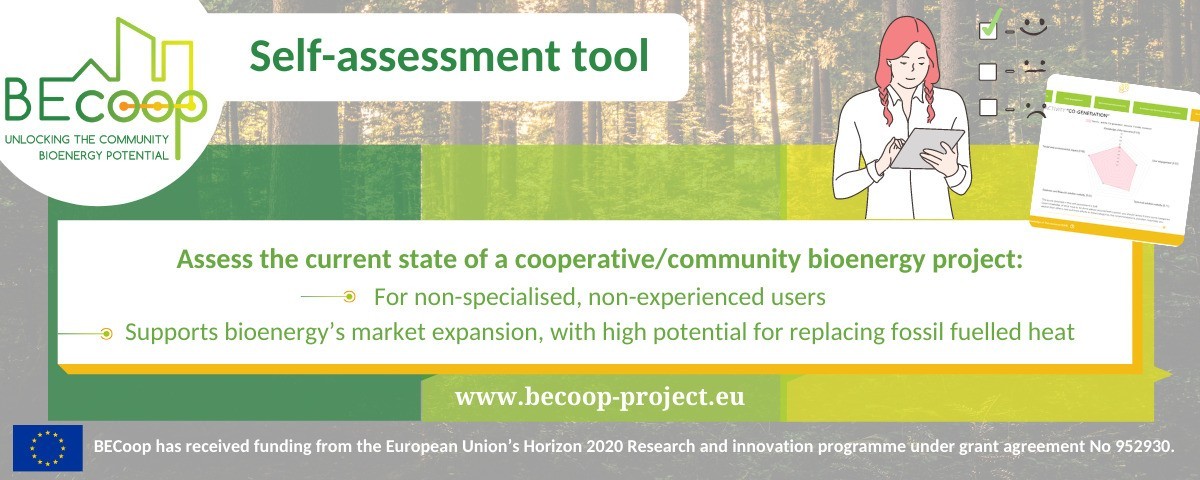BECoop self-assessment tool supports the development of cooperative/community bioenergy projects

Earlier studies realised by BECoop, a project funded by the Horizon 2020 programme, showed that the knowledge and acceptance of biofuel varies from region to region in Europe, making it an untapped source of renewable energy compared to other sources such as solar or wind.
To ensure bioenergy’s market expansion –with high potential for replacing fossil fuelled heat-, tools are needed to support market players: BECoop releases its self-assessment tool.
Last week, the International Energy Agency shared a 10-Point Plan to Reduce the European Union’s Reliance on Russian Natural Gas, including as number 5 the maximisation of power generation from existing dispatchable low-emissions sources - bioenergy and nuclear, calling on appropriate incentives and sustainable supplies of bioenergy to be put in place. BECoop participates in such an effort in many ways, one being to provide stakeholders with the right tools to kick start – or operate their projects.
Designed for non-specialised, non-experienced users seeking to assess the current state of a cooperative/community bioenergy project, the tool supports various users (provider, facility operators, RESCoops, local/regional authorities, and more) by providing an evaluation methodology, a set of indicators, metrics, definitions and technical as well as business recommendations, after they answer few questions on the resources available, the activity that best represent their initiative, and more. A spider web rating visualises the final results.
To allow the several market actors involved become (bio)energy producers, the BECoop self-assessment tool supports communities in getting prepared to tap the full bioenergy market potential, making them aware of the potential held by their projects. Users can assess the current status and future potential of community bioenergy, revealing and better understanding the gaps, maturity levels for the adoption of bioenergy heating, their level of community engagement, as well as the complexity of the existing framework for procurement and policy design. Users can select the type of biomass resources available – agricultural, forestry, agro-industrial, biomass from urban parks and garden management, and finally wet biomass-, the activity they want to implement and answer few questions. Their answers will help define the level of user engagement, the technical, business and financial solution maturity, as well as the social and environmental impact. Recommended actions appear when the user has answered all questions, guiding them to supporting resources and a score will be assigned depending on the option chosen, building in a graphical output (a spider-net) the project outcomes.
Users can access all BECoop tools with a single login, such as the e-market environment, supporting stakeholders when developing a community bioenergy project and defining the required services and activities for supporting their own cases and the future Knowledge Exchange Platform, a one-stop-shop lifting collaboration barriers across regions and sectors to share information and knowledge, available soon.
Visit the self-assessment tool



